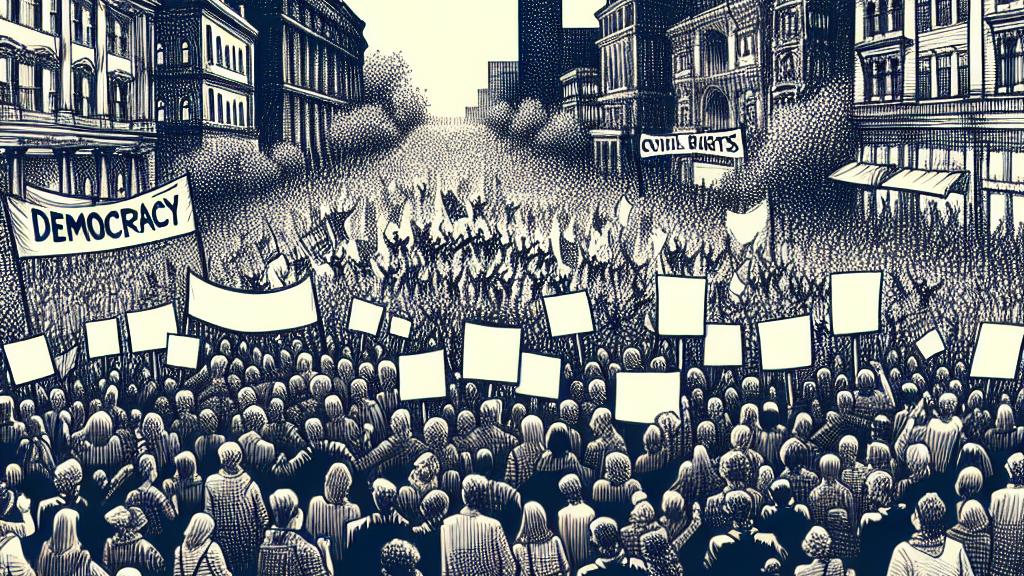Political Gamble: South Korea's Yoon Rescinds Martial Law
Overview
- In an unprecedented move, South Korean President Yoon Suk Yeol declared martial law amidst intensifying political strife, attempting to silence dissent.
- Faced with fierce backlash and protests, he quickly rescinded the directive, revealing his precarious hold on power.
- This startling event raises critical questions about the future of democracy in South Korea and the potential fallout for Yoon's leadership.

Martial Law Declaration
On December 4, 2024, President Yoon Suk Yeol shocked the nation by declaring martial law, claiming it essential for restoring order amid a deepening political crisis. He argued that the opposition's obstructive tactics threatened not only his presidency but also the stability of the Republic. His declaration, the first since South Korea's democratization in 1987, indicated a drastic shift in political tactics. In an environment already fraught with uncertainty, Yoon's rhetoric focused on protecting constitutional law and national security against perceived threats from pro-North Korean elements. However, his overreaching measure sparked public outrage, prompting masses to flood the streets in protest, waving banners that asserted their commitment to democracy and civil rights.
Rapid Reversal
Just hours following this startling declaration, Yoon faced a monumental backlash, as the National Assembly swiftly rallied together. In an unprecedented display of unity, 190 out of 300 lawmakers voted to demand the immediate lifting of martial law, showcasing the power of legislative intervention. Responding to this overwhelming opposition, Yoon took to the airwaves, announcing his decision to rescind the martial law decree in a televised address, a move that many interpreted as a desperate attempt to salvage his credibility. This rapid turnaround not only underscored his isolation within his own party but also highlighted the strength of South Korean democracy, demonstrating that even a president cannot unilaterally impose such drastic measures when facing unified opposition.
Implications for Leadership
Yoon's martial law debacle signifies a crucial turning point for his leadership and sets the stage for potential upheaval in the upcoming presidential elections. Analysts suggest that the backlash could embolden the opposition Democratic Party, positioning them favorably for a victory in 2025, should Yoon's miscalculations continue to alienate voters. Notably, prominent economist Rory Green emphasizes that political allies may begin to distance themselves from Yoon in the wake of this blunder, potentially paving the way for impeachment. Furthermore, Yoon's hardline position regarding North Korea stands in stark contrast to the more conciliatory approaches of his predecessors, further fracturing public support. As the landscape of South Korean politics evolves, the resilience of its democratic institutions remains a beacon of hope, reaffirming the notion that the people's power ultimately prevails against authoritarian tendencies.

Loading...